Philosophy has had its place in filmmaking since the birth of cinema. A philosophical undertone or meaning can create some of the most polarizing paintings of life. We are all thinkers; filmmakers are no different. They act as a visual representation for the voices in our heads. They answer questions that we often ask ourselves, with one of the most significant ones being: What is the meaning of life? That is the basis of existentialism.
Existentialism is a philosophical movement that made its notable emergence in the late 19th and early 20th century. Essentially, it is the belief that we are responsible for evaluating and searching for the meaning and purpose of our own life. We are not who we are based on a predetermined nature. Rather, we are defined by our own thoughts, actions, and choices. Existentialist questions are not limited to the self — answers to our place in the world and the reality of society itself are also sought after.
Existentialism — especially in drama films — is often told through self versus self conflicts: character studies where the protagonist comes to an understanding of their life’s purpose and the true essence of the self. Other times, it is a battle with society or the reality of the world they live in, and they must come to terms with the foreordained norms assigned to them. Here are 15 of cinema’s best depictions of existentialism.
Updated Feb. 4, 2024: This list of the best existentialist movies has been updated with additional information and useful features.
15 I’m Thinking of Ending Things (2020)
Writer-director Charlie Kaufman seemingly cannot make a film without bringing up some sort of existential question. Most of the time, he portrays these feelings through internal conflicts of the mind. I’m Thinking of Ending Things, starring Jessie Buckley and Jesse Plemons, might be his most internal of all. On its surface, I’m Thinking of Ending Things is an adaptation of the titular 2016 novel by Iain Reid, wherein a nameless woman (Jessie Buckley) goes on a road trip to meet her boyfriend’s parents. Of course, this simple plot hides a surreal exploration of double meanings.
I’m Thinking of Ending Things Is Difficult to Interpret
So many themes are portrayed throughout this film and Charlie Kaufman, like many of his films, made the true meaning up to interpretation. Difficult to interpret, if you find the hidden meaning, you will feel absolutely demoralized. The film’s open-ended nature prompted a polarized response from both audiences and critics, but its narrative structure and captivating performances — especially from Buckley, Toni Collette, and David Thewlis — make the search for answers genuinely enjoyable instead of tedious.
Stream I’m Thinking of Ending Things on Netflix
14 A Serious Man (2009)
One of the more forgotten about Coen Brothers movies, 2009’s A Serious Man follows the life of a Jewish physics teacher, Lawrence Gopnik (Michael Stuhlbarg), as his family life around him quickly falls apart. His wife leaves him for another man, his brother turns to a deadbeat, couch-surfing lifestyle, his son owes money to drug dealers, and his daughter steals money for a cosmetic surgery. With all of this on his mind, Lawrence embarks on an existential journey to reconnect with his Jewish faith.
A Serious Man Is an Underrated Coen Film
Like many of Joel and Ethan Coen’s films, some sort of deeper meeting is present and worth diving deeper into. It’s one of their sadder pictures when compared against their complete filmography, illustrating a world where an increasingly anxious and paranoid Michael Stuhlbarg can’t seem to find answers to his many questions. MovieWeb writer Rose McQuirtor goes into further detail about the Coen brothers’ intent, coming to an apt conclusion:
The film represents Joel and Ethan Coen’s experience growing up Jewish in America and the struggle between their faith and American interests.
Buy or Rent A Serious Man on Prime Video
13 Lost in Translation (2003)
Exploring existentialism through cultural differentiation and language barriers, Sofia Coppola’s Lost in Translation, starring Scarlett Johansson and Bill Murray, tells the story of two Tokyo-visiting souls, Bob and Charlotte, as they find solace in each other’s company while abroad in an unfamiliar place. The two characters cross paths in their individually isolated lives. Both have their own questions about mortality.
Lost in Translation Examines Uncertainty
Bob, a middle-aged actor, grapples with the fleeting nature of fame and questions his relevance as a performer, entertainer, and artist. Charlotte, a young, neglected wife at a crossroads in her life, contemplates the uncertainties of her future, unsure if her marriage will play out for the rest of her life. Together, they find beauty in the fleeting moments we take for granted, as well as the magical comfort of isolation.
The film’s technical qualities would be an immense subject of praise at the Academy Awards, eventually winning Sofia Coppola the award for Best Original Screenplay. The film would subsequently grab additional nominations for Best Director and even Best Picture, with widespread acclaim from general audiences and esteemed critics alike.
Buy or Rent Lost in Translation on Prime Video
12 Melancholia (2011)
Melancholia is a 2011 film written and directed by experimental director Lars von Trier, starring Kirsten Dunst and frequent collaborator Charlotte Gainsbourg. It tells the story of two sisters in the wake of a new, mysterious planet hurdling towards Earth. The collision of the two planets would be the end of all human life. With this fate in place, we see the existential differences between the two sisters: Claire (Charlotte) being more accepting and Justine (Kirsten) feeling a sense of emptiness and depression.
Melancholia Portrays the End of Days
Melancholia ponders the question of how we will act in the face of cataclysmic destruction, and what we will do with the little time we have left. With moments fleeting by, possibly for the last time, do we search for purpose? Do we live blissfully with no worries, accepting our fate? Or do we dwell in melancholy, refusing to forgive ourselves for our past choices? We get a chance to see both sides due to the impressive performances of Kirsten Dunst and Charlotte Gainsbourg. As part of Lars von Trier’s Depression Trilogy, it’s arguably the most visually stunning of the bunch, with Dunst in particular standing out as the film’s most impressive performer.
11 Breathless (1960)
Breathless is Jean-Luc Godard’s legendary film released during the heart of the French New Wave. This period of cinema saw a spark of existential stories with Godard as the captain and Breathless as his largest vessel. An art piece of pure aesthetic, this film shows existential dread as well as any movie. It tells the story of Michel Poiccard (played by Jean-Paul Belmondo), a young criminal who is on the run after stealing a car and killing a police officer. Together, Michael and his girlfriend Patricia (Jean Seberg) seek refuge in Paris, France.
Breathless Analyzes the Self
Breathless tackles the topic of authenticity of the self, and how opposing, controlling forces may be able to tell you what to do and what to say. However, they can’t change the internal nature of the soul and force you on a path of ordinariness. Some have even interpreted the film to contain nihilist elements as well, with the relationship shared between Michel and Patricia embodying different forms of nihilism via their distinct personalities.
10 Into the Wild (2007)
Into the Wild is a 2007 film based on the true story of Christopher McCandless who, rather than pursuing a prestigious career after graduating from the top of his class at Emory University, decides to give his savings to charity, leave his family, and live a lonely, adventurous life in the wilderness of Alaska.
Christopher (Emile Hirsch), also known as Alexander Supertramp (a self-given nickname), has a sort of quarter-life crisis and decides to abandon the conventional life his parents had built for him. Instead, he desires pure freedom, total control of his decision-making, and to reconnect with the Earth and all of its natural beauties. His rich parents, unfortunately, do not understand this level of thinking.
Into the Wild Features an Escape From Society
Chris escapes the noise of society and embraces solitude. Emile Hirsch captures the true freedom that such an environment would allow for, with the film’s overall structure allowing him to explore the opportunity for an effective character study. Knowing the fate that would eventually befall Christopher, director Sean Penn does an excellent job in portraying the thought process behind his journey, and how he confronts his existentialist crisis with a bold decision. It is hard to give Into the Wild a watch and not feel a sudden urge to go hiking or camping.
Stream Into the Wild on Paramount+ With Showtime
Groundhog Day Is a Spiritual and Philosophical Masterpiece
It’s February 2nd, and movie fans prepare themselves for Groundhog Day with one of the most deeply philosophical films ever made.
9 Birdman or (The Unexpected Virtue of Ignorance) (2014)
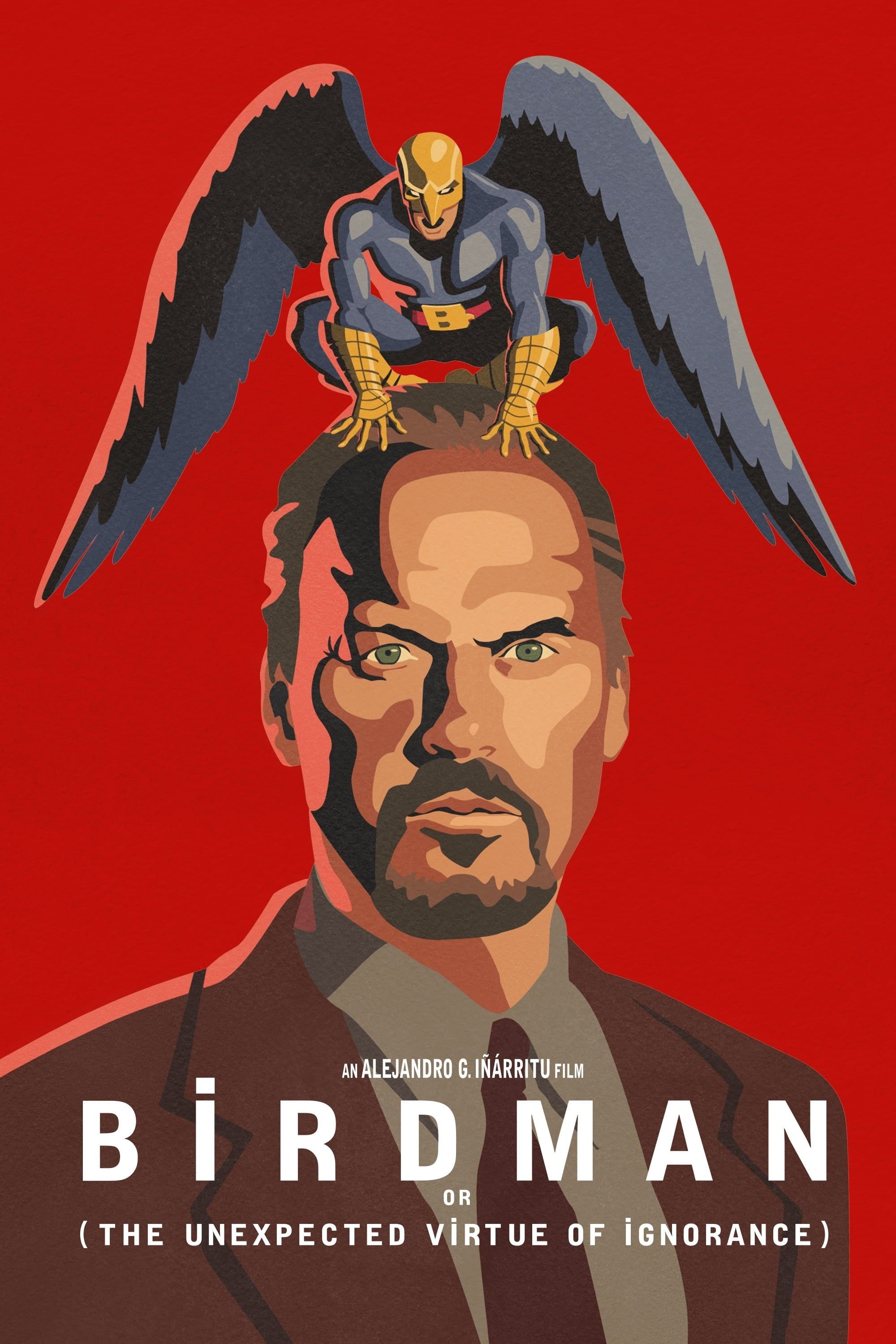

Birdman
- Release Date
- October 17, 2014
Birdman or (The Unexpected Virtue of Ignorance) was the Best Picture winner at the 87th Academy Awards. Written and directed by Alejandro González Iñárritu, it has a star-studded cast comprised of Michael Keaton, Emma Stone, Edward Norton, Zach Galifianakis, Naomi Watts, and many more. But the aspect that immediately makes this film a standout is how the majority of its scenes are seamlessly filmed in one, fluid take, masterfully crafted by revolutionary cinematographer Emmanuel Lubezki.
Birdman follows an actor named Riggan (Michael Keaton) who was once at the top of the film industry. He starred in a trilogy of movies as the superhero Birdman, and since then, his career has gone downhill. He attempts to rejuvenate his fame and glory by writing, directing, and starring in his own play.
Birdman Examines an Internal Alter Ego
Birdman is an ego tug-of-war, with Riggan feeling that reviving his career will lead to existential freedom. He constantly battles with his internal alter ego, a version of himself dressed up as Birdman, as he flies around and follows Riggan everywhere he goes. This haunting follower resembles the pressure of commercial success and the potential constraints of fame. In the end, it is up to interpretation if the curse has been lifted from him, or if it is something he will be constrained by forever. Keaton would secure a Best Actor nomination for his performance here, with Edward Norton being nominated for Best Supporting Actor alongside him.
Buy or Rent Birdman on Apple TV
8 Solaris (1972)
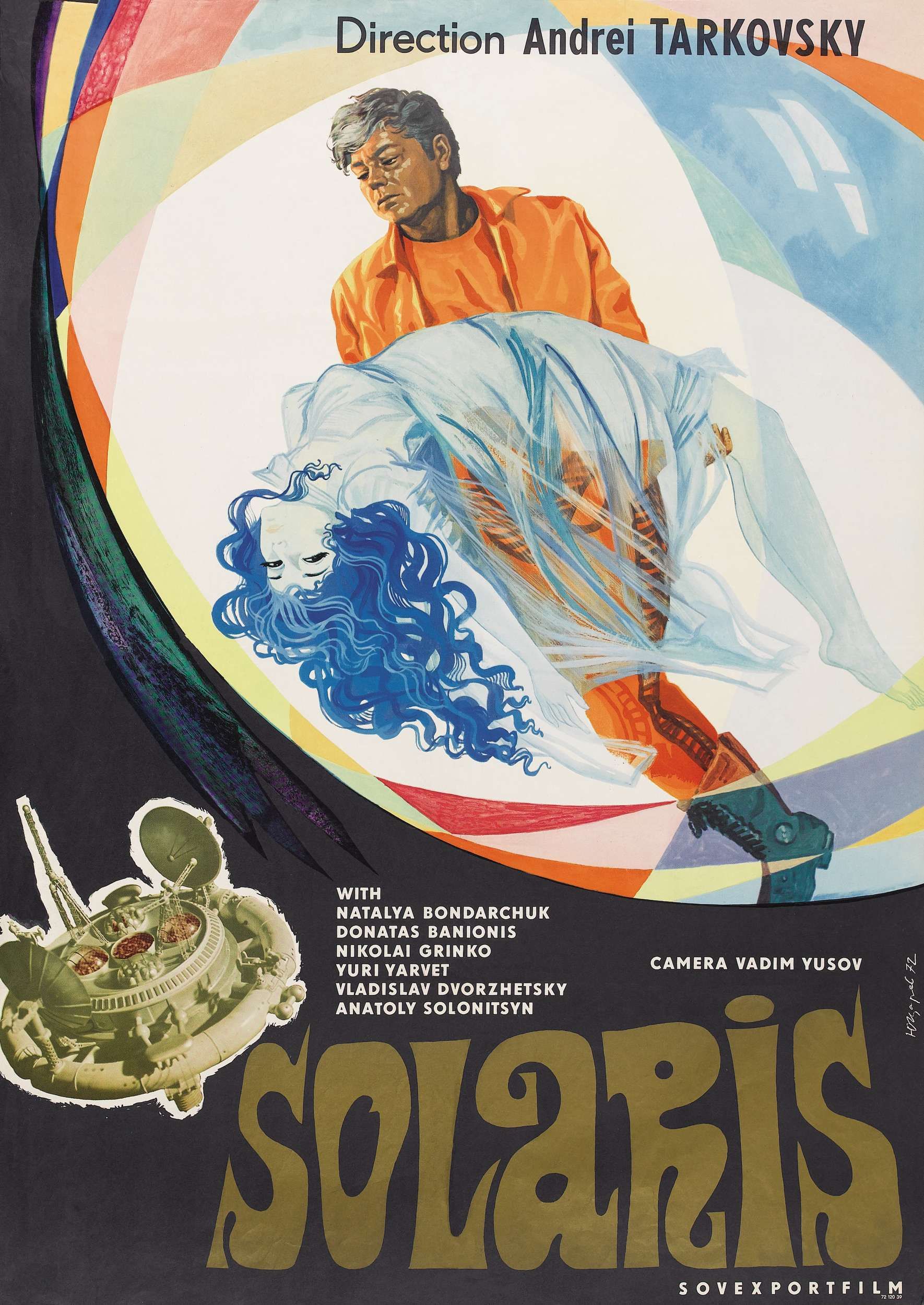

Solaris (1972)
- Release Date
- September 26, 1972
- Director
- Andrei Tarkovsky
- Cast
- Natalya Bondarchuk , Donatas Banionis , Jüri Järvet , Vladislav Dvorzhetskiy
In cinema, everybody is an artist. They all express themselves through stories in their own, unique ways. However, when it comes to cinematic purity, nobody does it more fluently than Andrei Tarkovsky. Like Godard, Tarkovsky explores existential and philosophical themes in his stories, and that doesn’t change with the genre. In 1972, Tarkovsky’s science fiction book adaptation Solaris was released in theaters.
Solaris follows psychologist Kris Kelvin (portrayed by Donatas Banionis), who is sent to a space station orbiting the planet Solaris. On the station, some of the crew have been experiencing psychological and paranormal phenomena. Kelvin is warned of these delusions, but brushes them off, thinking he can handle it. Very quickly, upon arrival, the powerful forces of the planet become too strong for Kris to handle. The delusions begin to change the fabric of his reality. He sees apparitions of his deceased wife; over time, they become parallel with reality.
Solaris Challenges the Perception of Reality
Every good existential film needs to have the main character make a choice. At the climax of the film, Kris must make the decision to either go back home or to live on this space station with the visions of his wife he thought he would never see again. It’s a film that challenges our own notions of perceived reality, presenting a choice to be made wherein you sacrifice objective reality in favor of an illusion that provides familiar comfort. While this film is more directly rooted in science fiction than Tarkovsky’s other incredible film, Stalker, it’s a film whose emotional core and deeper meanings elevate it above its contemporaries.
7 The Matrix (1999)
The 1999 cinematic game changer The Matrix may seem like an innovative, thrilling action flick at first glance. However, if you dive a little deeper, The Matrix is actually existentially rich, exploring internal crises relating to the world around Neo (played by Keanu Reaves) and to the identity of Neo himself. As it pertains to the world, is it fun to play the mental game of what reality truly is? Are we in the real world? Is this a simulation? Are there parallel universes? As humans, we can’t help but to explore the possible answers explaining the world around us.
The Matrix Challenges the Authenticity of Our Experiences
In The Matrix, we get one of the answers, with Neo living a constructed life in a virtual reality world known as The Matrix. For Neo, this raises plenty of existential questions relating to the authenticity of his own experiences. Will he stay in his world of lies? Or seek refuge in the truth, and accept his potential fate as a hero? As obvious as the answer is, it no less adds a deeper core to what would’ve been a typical science fiction action film.
6 Memento (2000)
Memento, written and directed by Christopher Nolan and starring Guy Pearce, embodies the meaning of existentialism through a man named Leonard (Guy Pearce), who battles short-term memory loss. In an attack that kills Leonard’s wife, he is left with a memory deficiency where new memories fade after a short period.
To battle this, he gets tattoos of important information, takes photographs of key places and people, and leaves a constant paper trail of his day-to-day business, such as what his car is, where he sleeps at night, and whether a friend of his is really trying to deceive him. Leonard’s goal is to seek vengeance on the man who killed his wife, though his memory may be the biggest obstacle in his investigation.
Memento Examines How Memory Ties With Purpose
The existential question of Memento revolves around whether Leonard will be at peace knowing the man who ruined his life is no longer a part of this world. Is Leonard’s new purpose to accomplish what he sets out to do? Will this really bring him peace? Will he even remember? This concept is toyed with in the film itself, as two separate timelines — one in color, one in black and white — play out simultaneously until they meet at the film’s conclusion. Once you see the ending, the rest of the film changes substantially.
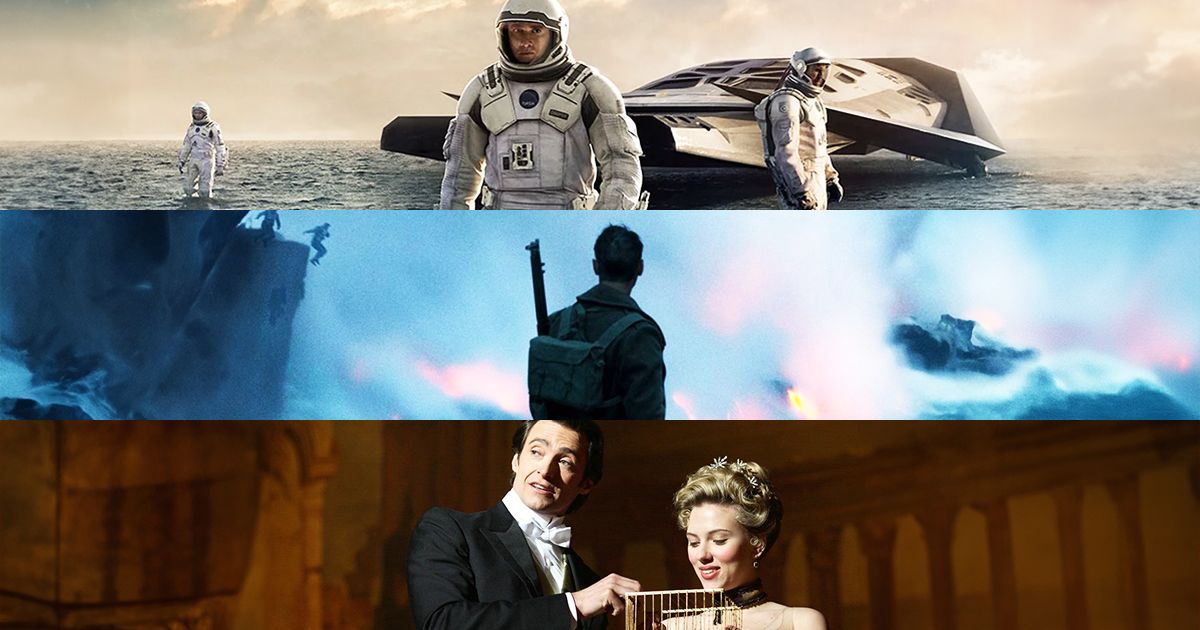

10 Best Scores in Christopher Nolan’s Movies, Ranked
Some of the greatest living composers have scored Nolan’s movies, including Hans Zimmer and Ludwig Göransson. Here are the 10 best soundtracks ranked.
5 The Truman Show (1998)
The Truman Show is a Jim Carrey and Ed Harris motion picture, which was directed by Peter Weir in 1998. This film is about a man named Truman (Jim Carry) whose entire life since birth is a never-ending reality television show. The kicker is this: Truman does not know he is a part of a reality television show. He just simply goes about his life none the wiser. That is, however, until the veneer of the facade starts to peel away.
The Truman Show Features the Allegory of the Cave
In an Allegory of the Cave tale, Truman is unaware of the world outside the walls of his metaphorical cave. Throughout the film, he starts to pick up hints, and existential questions about the reality of himself and the world around him come to fruition. It’s arguably the most textbook example of an existential crisis depicted in film, with Truman’s entire worldview and understanding of his reality gradually being peeled back bit by bit. The film’s dramtaic conclusion acts as a thematic bookend, closing one door in his life and opening another with his newfound perspective. That’s to say nothing of the film’s themes surrounding media dependence as well.
Stream The Truman Show on Paramount+
4 Eternal Sunshine of the Spotless Mind (2004)
Eternal Sunshine of the Spotless Mind, starring Jim Carrey and Kate Winslet, is a 2004 Charlie Kaufman-written film directed by Michael Gondry. It follows a couple, Joel and Clementine, who undergo a medical procedure to erase their memories of each other after their sensual relationship takes a turn for the worse. However, in a twist of fate, this may allow the two to reconnect with each other for the first time again.
Charlie Kaufman Examines the Role of Memories in Forming Identities
In Charlie Kaufman fashion, existential themes are explored in this film, but this time he dives into how our memories play a part in our identity. The film claims that, even if they are horrid, vile, and disturbing, they still play a part in who we are as a whole, and should still be cherished as such. The efficiency with which Eternal Sunshine of the Spotless Mind explores these ideas has been praised by a variety of institutions, with the Writer’s Guild of America putting its screenplay in their collection of the 101 Greatest Screenplays circa 2006.
Buy or Rent Eternal Sunshine of the Spotless Mind on Apple TV
3 The Seventh Seal (1957)
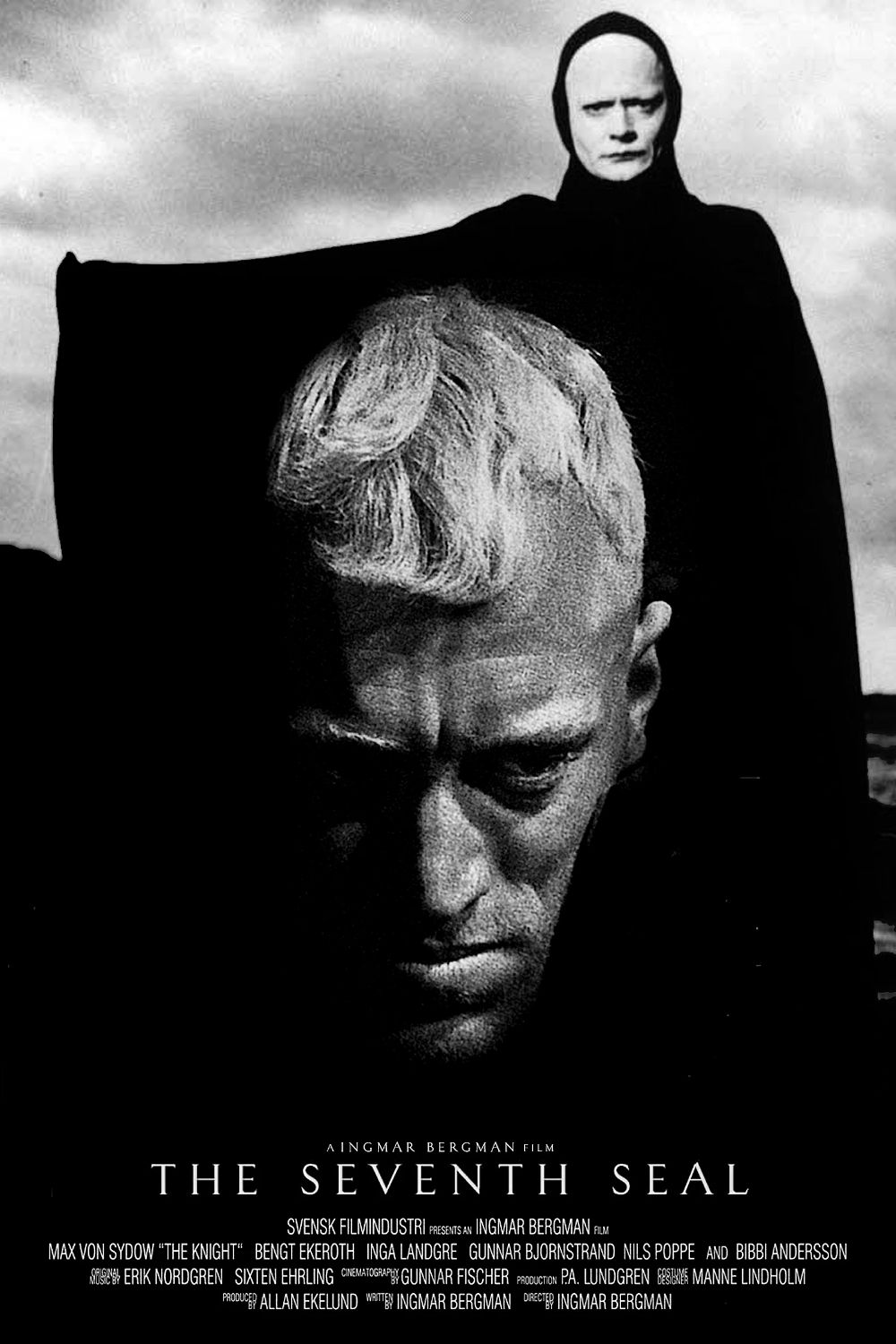

The Seventh Seal
- Release Date
- February 16, 1957
Why must God hide when Death stares us straight in our face? The Seventh Seal, a 1957 Swedish film written and directed by influential filmmaker Ingmar Bergman, tackles some heavy topics throughout its riveting tale. The story follows a mangled medieval knight named Antonius Block (played by Max von Sydow) as he returns home from a failed crusade in the midst of the Black Death, a devastating global epidemic that wiped out much of the Eastern Hemisphere in the 14th century. Once Block arrives, he encounters a personification of Death (played by Bengt Ekerot) and then challenges Death to a game of chess to save his own mortality.
The Seventh Seal Questions Faith and the Afterlife
The Seventh Seal tackles the philosophy of existentialism through a tough-to-swallow, controversial topic: the nature of faith, the existence of God, and the truth of an afterlife. Bergman explores the understanding of God’s silence. In the midst of tragedy, why do we feel isolated from God?
Bergman explores that it isn’t so much as God making one decision or another (like the black and white squares of a chess board), yet our lives are in our own hands, and the free will we have to move and make decisions (like the moves in a game of chess) determines our own fate and our own life purpose.
Stream The Seventh Seal on Max
2 Stalker (1979)
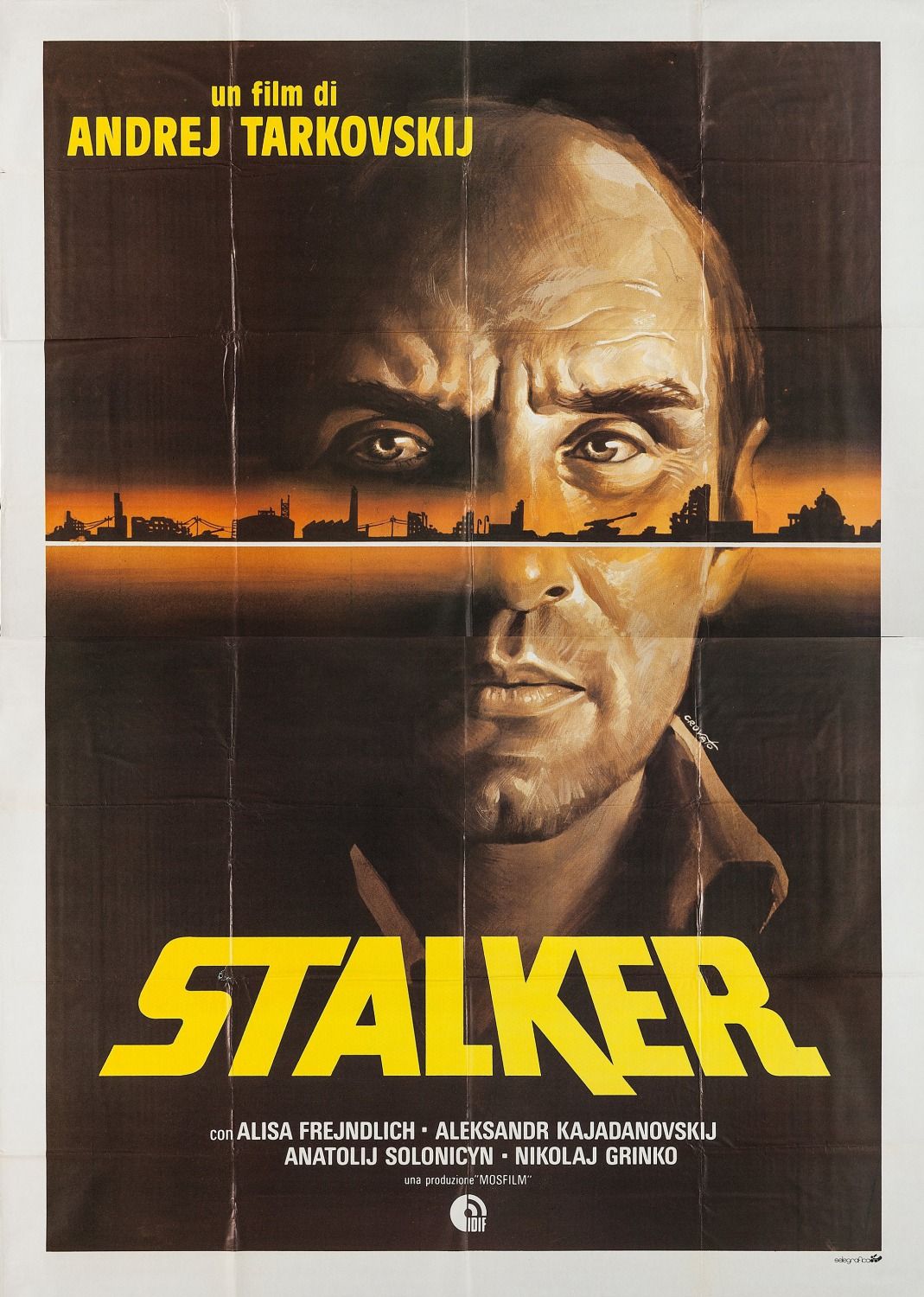

Stalker
- Release Date
- April 17, 1980
- Director
- Andrei Tarkovsky
- Cast
- Alisa Freyndlikh , Aleksandr Kaydanovskiy , Anatoliy Solonitsyn , Nikolay Grinko
Andrei Tarkovsky makes his second appearance on this list with his 1979 mind-bender Stalker. It is loosely based on a novel called Roadside Picnic, written by Arkady and Boris Strugatsky. This film, like many of Tarkovsky’s, is heavy on the philosophical and allegorical end of storytelling, with many existential themes littered throughout.
Set in a post-apocalyptic world, we follow two men, known as the Writer and the Professor, as they are guided by a man named the Stalker through a mystifying area called the Zone. Here, they are searching for the Room, a place where desirable wishes can be granted.
Stalker Pairs Disillusionment With Desire
Stalker explores the dark side of human desires and the disillusionment and potential disappointment of those desires being fulfilled. Though it’s a science fiction film on the surface, Stalker famously transcends its genre, painting a mysterious world that addresses the meaning of life in a way that’s both satisfying and immensely melancholic. Its tangible setting and journey are simply a front for deeper questions surrounding life and its many existential questions. This is Tarkovsky at his finest.
2:03
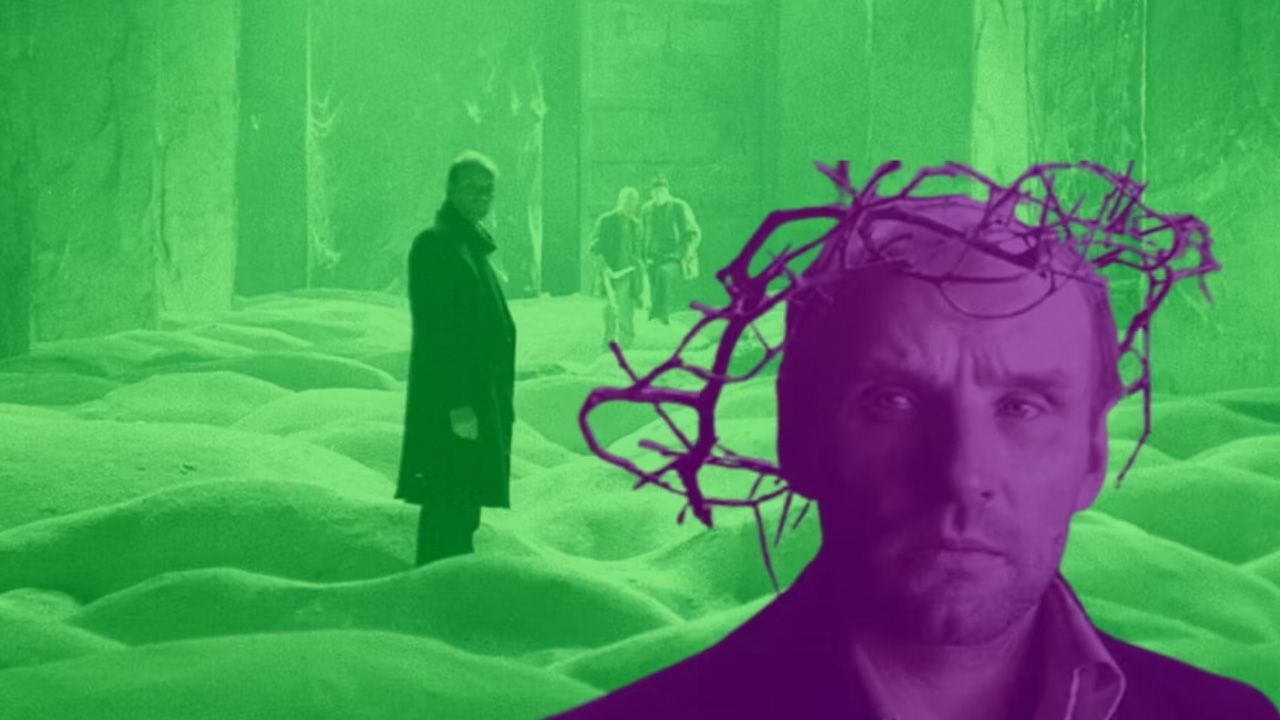

Why Stalker Is Named One of the Greatest Sci-Fi Movies of All Time by Rotten Tomatoes
As cryptic as it is, Stalker is a fascinating and metaphysical sci-fi journey that’s designed to make an imprint on you. This is why critics love it.
1 Ikiru (1952)
At the top of this list sits Akira Kurosawa’s 1952 classic Ikiru. Ikiru, which translates to “to live” or “living” in English, is about a middle-aged man named Kanji Watanabe (Takashi Shimura) who discovers he has terminal cancer. Feeling he has thus far lived a monotonous, unfulfilled life, Watanabe uses his last little bit of time left on this planet to find his true purpose, or maybe just a purpose.
Ikiru Is a Perfect Existentialist Film
Kurosawa is another classic film director who explores the theme of existentialism and the meaning of life consistently throughout his filmography, yet it can be argued that Ikiru stands the test of time better than the rest. So many beautiful scenes make up this film that makes it a perfect representation of existentialism in film. Take the swing scene after he finds out about his cancer diagnosis, for instance. Or, consider the bar scene, where the fun he attempts to have feels worthless and phony. Finally, there’s the deathbed scene, where those around him celebrate Watanabe’s impact on them. As sad as its central subject is, it’s a film more about finding the ultimate positives in life, making it an excellent example of examining existentialist ideas in film.
Interested in more films that make you think? Why not take a look at our picks for the best deeply philosophical movies to ponder over below:
This story originally appeared on Movieweb

